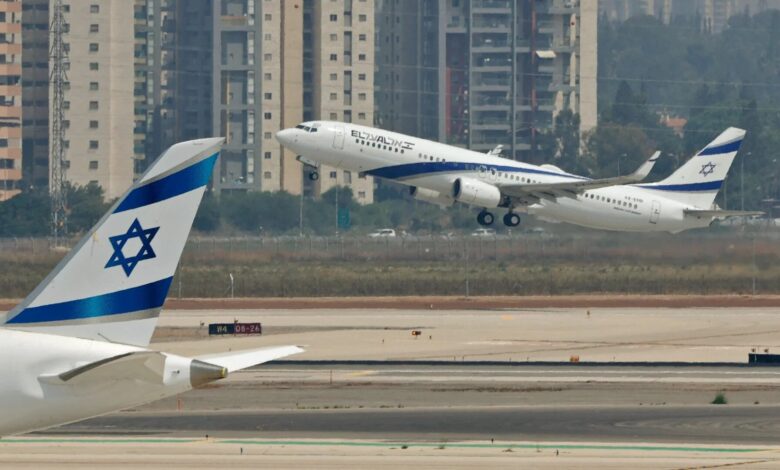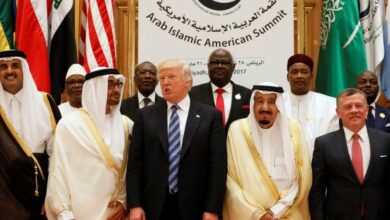The UAE’s Resistance to an Arab‑Islamic Airspace Blockade of Israel — Interests, Risks, and Revealed Strategy

After the Israeli airstrike on September 9 targeting Hamas officials in Doha, several Arab and Muslim‑majority countries reportedly considered a coordinated airspace blockade against Israel as a response. Well‑informed sources tell Dark Box that the UAE has taken steps—both public and clandestine—to block or weaken this proposal. This report lays out that role, its motivations, the scale of risk, and what it may mean for regional alignment.
Background
- On September 9, 2025, Israel conducted airstrikes over Doha. Regional outrage surged. Among proposed responses was closing airspace over Israel by Arab and Islamic states—a powerful non‑military sanction approach to punish and constrain Israel’s ability to project power and logistics via air routes.
- Think tanks like Arab Airspace Blockade After Doha Attack have modeled what such a blockade could cost Israel: contraction of GDP (≈4.8‑5.7%), major disruption to trade, tourism, flight corridors, etc.
UAE’s Role
From both public statements and policy‑analysis leaks:
- Public condemnation, private resistance
Abu Dhabi officially condemned the strike in Doha as “treacherous” and an attack on GCC collective security. It summoned the Israeli envoy and joined wariness in Gulf‑Arab media. However, in parallel, UAE diplomats are said to be lobbying other Arab states to avoid concrete measures such as closing airspace or enforcing full sanctions. Sources note: the UAE frames these measures as too risky for states which have normalized with Israel.
- Protecting normalization gains
The UAE is one of the key proponents of the Abraham Accords, which involve Israel. Thus, actions that strongly penalize Israel—such as airspace closures—could endanger parts of these accords: aviation agreements, overflight permissions, direct flights, trade corridors. As referenced in the blockade analysis, UAE is concerned that participation in a blockade could backfire diplomatically and economically.
- Lobbying to soften joint statements
Within Arab League, OIC, and GCC aligned diplomatic drafting processes, UAE is reported to have pushed to remove or weaken any draft text that would commit states to airspace closures. Instead, emphasis is put on diplomatic condemnation, political solidarity, and verbal protests.
- Balancing act with domestic and international posture
The UAE must maintain its image as a regional normalization bridge, attractive to Western partners and investors. Escalatory coordination like an airspace blockade could strain those relationships. Hence, UAE’s strategy appears to aim at being seen as standing with Arab solidarity — but not at the expense of its established ties with Israel and its Western backers.
Risks & Stakes
- Economic risks: Airlines, trade routes, tourism revenues could suffer if airspace routes are disrupted.
- Diplomatic risks: Participation in coercive measures could imperil UAE’s normalized status with Israel, and its role as “mediator/partner” in Abraham Accords.
- Security risks: Israel might respond to blockade with military measures, affecting UAE facilities, overflights or shared security intelligence.
- Domestic legitimacy: Populations in many Arab countries call for strong reaction; UAE’s cautious stance might be perceived as betrayal in public discourse.
Implications
- The UAE is positioned to act as a brake on Arab‑Islamic collective responses to Israeli actions.
- The decision over whether to follow through with airspace restrictions may reveal how durable the Abraham Accords are under stress.
- If UAE prevails in limiting collective blocking action, regional dissent may shift from diplomatic channels into public protests or alliances with more confrontational actors.
Conclusion
Dark Box’s sources suggest the UAE is safeguarding its interests — economic, diplomatic, strategic — by working to prevent Arab‑Islamic countries from implementing a coordinated airspace blockade of Israel in response to the Doha strike. While publicly expressing solidarity and outrage, Abu Dhabi appears determined to protect normalization gains over strict solidarity measures. The coming days and draft resolutions will show who leans into pressure, and who shields Israel via caution—and who pays the price for that restraint.




